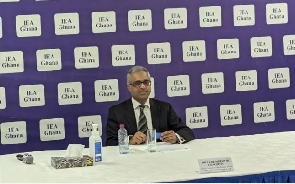A Senior Lecturer in Economics, Finance and Entrepreneurship at Aston Business School, Aston University-United Kingdom, Dr. Sajid Chaudhry, has suggested implementing a targetted and nuanced bank tax.
He believes the move should be part of measures geared toward reforming the domestic banking industry and promoting financial stability while generating consistent revenue for the state
A bank tax, which is an additional duty imposed on financial institutions, particularly banks, gained traction after the 2008 financial crisis and is aimed at reducing risk-taking activities of the institutions – serving as a source of revenue for the state while boosting competition.
Domestic banks, particularly the top-10 by asset size, have come under scrutiny for their super-normal profits – with the industry average return on equity being almost double the 10-year average return on the stock market composite index of 38.5 percent as well as the seven-year government bond, prior to the shocks of 2022.
Furthermore, these institutions have recorded high net margins on account of the high spread between deposit and lending rates, with a historically high bent toward government securities.

During a recent economic policy forum hosted by the Institute of Economic Affairs (IEA), Dr. Chaudry – using prior data leading up to 2022, suggested that the tax would have the additional benefit of encouraging banks to reduce their reliance on short-term funding while ensuring they adhere to their primary purpose; which is lending, particularly to the real economy.
He stated: “A bank tax will provide Ghana with a sustained source of revenue with attempts to move the country’s economy beyond dependence on aid, and will further help reduce the budget deficit.
“Ghanaian banks are too profitable (in terms of what is socially optimal) and they earn much higher profits compared to other industries, with most of the profits coming from investments in Treasury securities,” he added.
Particulars
Dr. Chaudhry’s tax proposal includes two key components. Firstly, he proposed two options for taxing big banks with a balance sheet size of at least GH¢7billion. The first option is a tax of two percent on their total liabilities after deducting equity and insured deposits. The second option is a tax of 10 percent on their profits before taxes, whichever amount is higher. This tax would be applicable over the long-term.
This revenue line, he said, aims to promote more stable and long-term funding practices within the banking sector.
The senior lecturer explained: “A tax on total liabilities net of equity and insured deposits will act as a catalyst for banks to reduce reliance on short-term funding sources, and help reduce bank risk in the long-term”.
Additionally, for the short-term, Dr. Chaudhry proposed a 10 percent tax, at the current rate, on investments in Treasury securities. This tax would be half the current 91-day Treasury bills’ rate and serve to curb the overreliance on Treasury securities as a primary source of bank profits. The economist projected that this tax on Treasury securities would yield approximately GH¢5.34billion in the short-term.
Dr. Chaudhry emphasised the potential benefits of the bank tax, stating: “The tax on liabilities will particularly be helpful when banks are bigger, riskier and earning even more profit in the future.”
Some analysts have however raised concerns about the taxes that these institutions are subjected to, particularly in the light of recent developments. Already, banks pay the general corporate income tax (CIT) rate of 25 percent. This is in addition to the Financial Sector Recovery Levy of 5 percent on their pre-tax profit as well as 5 percent of the same profit as Growth and Sustainability Levy, which has succeeded the National Fiscal Stabilisation Levy.
Dr. Atuahene thinks otherwise
Responding to the proposal, a banking consultant, Dr. Richmond Atuahene, said it would not be the most ideal line of action now or anytime in the foreseeable future.
“The banks were already paying three main types of taxes, but with the DDEP losses they will not be able to pay all three taxes. The proposal to pay additional taxes is not feasible at all,” he said.
Dr. Atuahene cautioned against the possible downside of excessive taxation on the economy: “It feels quite unfair to push these taxes which seem punitive. The banks continue to operate in a volatile environment. When there is an upside, we want to tax everything off them. Now that they need to recapitalise, will the tax authorities do that for them? We need to be careful about the signals we are sending to businesses”.
The former banking lecturer further stated that excessive taxation of businesses operating in finance, telecommunication and extractives represents a failure to tackle the real issues. He suggested the facilitation of a conducive environment that will allow cheaper credit to be extended to the real sector, which in turn will lead to more prosperous businesses that can then be taxed moderately.
“What we should be focusing on is bringing interest rates down and providing an environment wherein long-term capital can be given to businesses. When these businesses grow, the tax base will invariably grow,” he added.
Business News of Tuesday, 6 June 2023
Source: thebftonline.com
Economist proposes bank tax
Entertainment
















